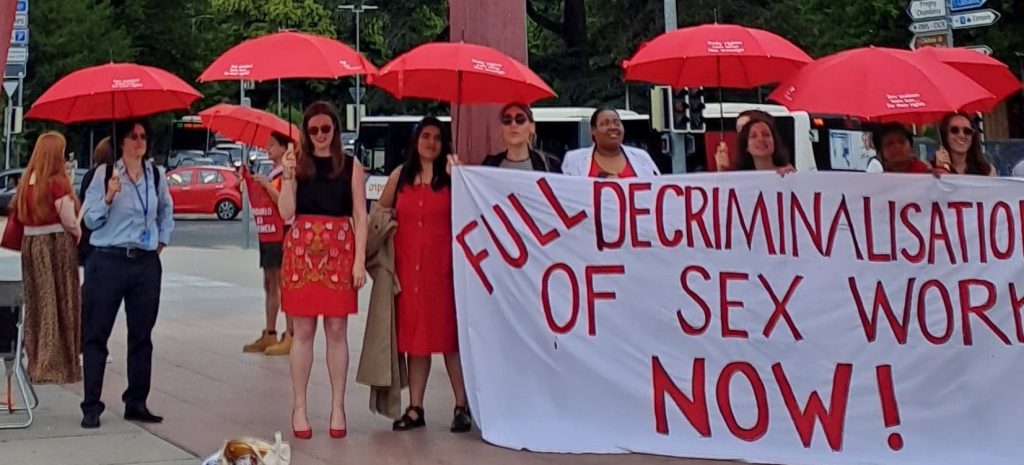Sex Work Delegation at the Human Rights Council
At the 56th session of the Human Rights Council in June, sex workers from around the world gathered to hear Special Rapporteur Reem Alsalem present her report on Prostitution and Violence against Women and Girls. Although visa obstacles prevented a few young sex workers from attending, about 20 sex workers from various regions made it to Geneva. Among them was Trajche Janushev, SWAN’s programme officer, representing SWAN and our region.
This participation was vital, particularly during the presentation of the Special Rapporteur’s report on Prostitution and Violence Against Women and Girls. The sex worker delegation was organized by the Global Network of Sex Work Projects (NSWP) and supported by the Sexual Rights Initiative (SRI). The trip aimed to address the report’s damaging effects and amplify the voices of sex workers.
The Report: A Step Backwards
The report presented by the Special Rapporteur has been heavily criticized for its regressive stance and disregard for sex workers and the sex work movement. It employs shameful and stigmatizing terminology that deepens the marginalization of sex workers. The report’s failure to distinguish between consensual sex work and trafficking demonstrates a lack of understanding of the issue’s complexity.
One of the most alarming aspects of the report is its advocacy for harmful models of criminalizing sex work. By pushing for these outdated and punitive approaches, the report disregards extensive submissions from sex workers and their allies that highlight the real impacts of such policies. Criminalization not only endangers sex workers but also undermines their human rights, safety, and dignity.
Meetings and Advocacy Efforts
During their stay in Geneva, the sex work delegation engaged in a series of strategic meetings. These included preparatory meetings within the delegation, allies and meetings with state representatives from Belgium, New Zealand, Australia, and the Netherlands. The delegation also had crucial dialogues with key figures such as Dr. Tlaleng Mofokeng, the UN Special Rapporteur on the Right to Health; UNAIDS Executive Director Winnie Byanyima; and Maria Aylen Vandoni, Human Rights Officer of the Working Group on Arbitrary Detention/Special Rapporteur Branch. These meetings were essential for sharing specific issues and information from the CEECA region, such as the effects of foreign agent laws on health services provided by NGOs.
The presence of sex workers at the Human Rights Council underscores the urgent need for their voices to be heard and their rights to be recognized. The report from the Special Rapporteur on Prostitution and Violence Against Women and Girls, with its harmful recommendations and outdated perspectives, poses a significant threat to the well-being and rights of sex workers globally. Policymakers must listen to sex workers and adopt approaches that protect their rights, safety, and dignity.
For more information on the Human Rights Council’s 56th session, you can read Nadia van der Linde’s article here.
